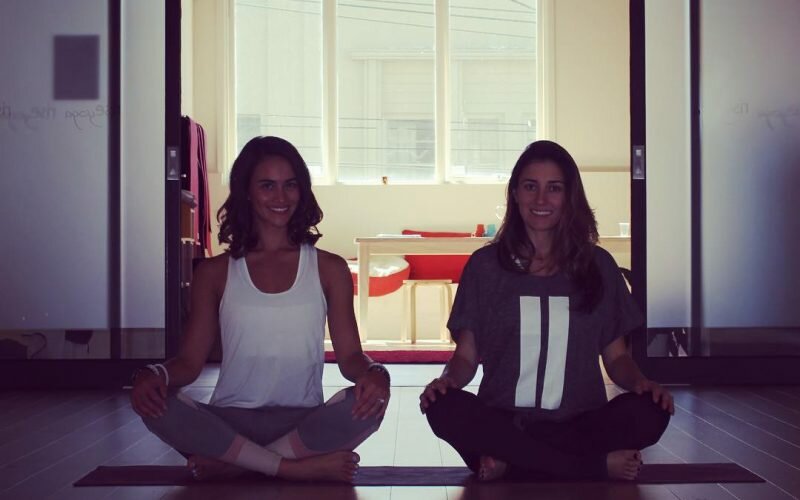1. Dim Your Screens Or Use “Night-Mode.”
If you’re unable to avoid screens completely, many portable devices come with a “night mode” option that reduces the amount of blue light the screen emits. You can often even set them on a timer so that your screens will automatically adjust in the evening.
Setting your PC to “night mode” isn’t as simple as on your portable devices, but with software like f.lux it can be done. F.lux is completely free and will automatically adjust your computer’s display to mimic your environmental lighting, limiting both the strain on your eyes and lowering your exposure to blue light in the evening.
Simply download the software, install and complete your personal settings.
2. Keep Electronic Devices Out Of The Bedroom.
One of the pieces of advice repeated by sleep experts is to reserve your bedroom for two activities: Sleep and intimacy. By bringing your tech devices into the bedroom you’re training your brain to see it as an environment for work or entertainment and not a sanctuary reserved for relaxation and calm.
Remove TVs and computers from the bedroom, and make a charging station for your other devices somewhere else in your home.
3. Turn Off Notifications On Your Devices.
If you absolutely must have your phone or other devices in the bedroom, do yourself a favour and put them on silent when it’s time for bed. According to AOL’s “Email Addiction” survey, over 40% of people admit to checking emails in the middle of the night, and a similar story can be said for other tech-based nighttime interruptions.
There are justifications for why you may want or need to receive certain notifications during the night, such as if you work on call or simply in case an emergency arises. If this is the case, try setting your phone on “do not disturb” mode: This will allow you to select which types of notifications you would like to receive, and which can be ignored until sunrise.
4. Be Conscious Of Your Exposure To Artificial Lighting.
While we might not immediately think of all our electric lighting as being “tech,” our ability to artificially illuminate our environment has had a significant effect on our sleeping habits.
Light in all forms is the main cue that your body uses to regulate your internal body clock: If you’re exposing yourself to bright, direct sources of light right up until bedtime your brain is going to have a hard time switching over to sleep mode.
Experts recommend dimming the lights in your home in the evening, and opting for indirect sources — such as desk and floor lamps rather than overhead lighting — for at least one hour before bed. You can even purchase lighting systems that will gradually dim the lights in the evening, as well as slowly brighten in the morning to compliment a natural sleep/wake schedule.
5. Go “Tech-Free” For An Hour Before Bedroom.
This one is perhaps the hardest for people to take on, but experts are unanimous that choosing non-tech entertainment in the hour before bed can dramatically improve the quality of your sleep. So, instead of watching Netflix or scrolling through your Twitter feed, try to read a book or practice another sleep-friendly activity such as yoga or meditation.
If you’re someone who needs that break at the end of the day relaxing passively, instead of TV try an audiobook or podcast. This way you can still indulge in a dramatic plot without having to suffer the consequences of blue light exposure.
6. Invert E-Readers.
If you don’t have one of the new generation of e-readers that has a non-backlit display, you can still reduce your exposure to blue light by inverting the colours. Set the background to black and the text to white for your pre-bedtime reading session. While this may take a little getting used to, your body and mind will thank you.
7. Avoid Stimulating Electronic Activities Late At Night.
Certain types of electronic activities have been shown to be more stimulating than others, and this stimulation leads to an overactive brain at a time you want to be winding down. While watching TV or perusing Facebook are reasonably passive activities, playing video games or exchanging texts with a friend is the opposite.
The more interactive an activity is, the more awake your brain needs to be to partake — and switching from a waking to sleeping state isn’t as simple as closing an app.
So, while you may be able to get away with certain types of tech use at night, there are others you really should be avoided at all cost.
8. Pick Up A Pair Of Tinted Glasses.
Although less effective than changing the display on your devices, yellow or orange tinted computer glasses do help reduce the amount of blue light that enters your eyes. These can be purchased with or without prescription, and have the added benefit of reducing eye strain while using electronic devices when worn throughout the workday.
9. Cover Up Digital Clock Displays.
While it may seem insignificant, your bright digital clock shining the time in your otherwise dark room does have an impact on your sleep. Beyond creating an unnecessary light source, having the time looming over you can exacerbate insomnia.
The last thing you want to do when you’re having trouble sleeping is continuously reminding yourself how much time has gone by, and — even worse — how much time you have left before you have to get up for the day. So, turn over your clock and ignore the passage of time until morning.
10. Have A Firm Bedtime.
Being surrounded by tech — from artificial lighting that illuminates the night, to smartphones that keep us in constant communication with the world — It’s easy to stay up finishing a project or enjoying one last episode of your favourite show.
However, even if you just prolong your waking hours by a tiny bit each day you are offsetting your natural sleeping patterns. As the difference between your body’s norm and your habits increases, you run the risk of developing a variety of sleep disorders.
Be firm with yourself: Set a bedtime and stick to it. Being consistent in your sleep-wake schedule is one of the most powerful tools to promote healthy sleep.
While this may seem a lot to take on, try baby steps. Breaking habits is no small feat, you need to set realistic expectations for yourself and work your way towards your goal gradually. And what’s more motivating than the goal of a deep, restful sleep?
Article originally appeared on www.nestmaven.com






